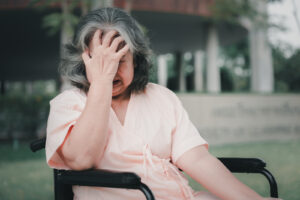Senior Home Care Advice on Migraine Symptoms and Treatment

Migraines: Senior Home Care Springfield VA
Migraines can affect anyone of any age, even seniors. Knowing this, loved ones and senior home care professionals must understand the symptoms of migraines. This helps them learn how to support seniors, especially since they are often already dealing with various health issues. Migraines may affect seniors differently, but with careful monitoring and open communication, everyone can be on the same page.
Identifying the Symptoms of Migraines in Seniors
Seniors who suffer from migraines frequently report intense, throbbing headaches on one side of their head, which can linger for several hours or even days. During an episode, they may become more sensitive to light and sound, causing them to seek calm and darkly lighted places. Migraines are frequently accompanied by symptoms such as nausea, vomiting, and visual disturbances such as auras that feature flashing lights or zigzag patterns.
Treatment of Migraines in Seniors
Seniors need a peaceful and quiet place to rest in the event of a migraine to help relieve some of their pain. In addition, pain remedies available over the counter, such as acetaminophen or nonsteroidal anti-inflammatory drugs (NSAIDs), may be effective for treating moderate migraines. Loved ones and seniors should always consult medical professionals before taking any new medication, particularly if there are preexisting health issues or concerns about drug interactions.
Consulting Their Doctor
Suppose seniors often have migraines or they are particularly severe. In that case, their doctor may suggest taking prescription medicine, such as triptans, which helps narrow blood vessels, or other preventive medication. Alternative treatments such as acupuncture, biofeedback, or relaxation techniques can also be relieving, provided that they are performed under the supervision of a trained medical expert.
Hydration and Nutrition
Seniors should stay well-hydrated, as migraines have been linked to dehydration. It is important for them to consume sufficient amounts of water throughout the day. There are also several foods and beverages that are known to be migraine triggers and should be avoided or consumed in moderation. Among these are aged cheeses, processed meats, chocolate, caffeine, and alcohol.
Instead, seniors should focus on including magnesium-rich foods in their diets, such as vegetables with leafy greens, nuts, seeds, and whole grains, since magnesium has been shown to possibly assist with migraine prevention. Senior home care assistants can help by talking with seniors about their dietary needs and providing healthy meal planning.
Getting a Good Night’s Sleep
Maintaining a consistent sleep schedule is another preventative measure. It is important for seniors to maintain normal sleep habits and to ensure that they get sufficient rest each night. Additionally, lessening stress can go a long way in ensuring seniors are migraine-free. Loved ones and senior home care professionals can encourage seniors to enjoy stress-relieving tactics such as deep breathing exercises or meditation.
Migraines have the potential to considerably impact the quality of life of seniors. However, their effect can be minimized with the help of loved ones and senior home care aids. Helping seniors effectively manage migraines requires awareness of the symptoms, followed by consistent treatment and a focus on preventative measures. With help, seniors can keep migraines at bay and enjoy their normal routines.
